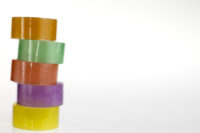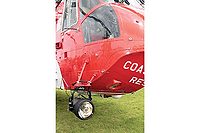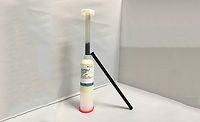U.S. Air Force Qualifies PPG Aerospace Electrocoat Primer
The Air Force initially will coat test parts on a PPG e-coat system that it installed at its Advanced Technology and Training Center in Georgia.

PPG recently announced that the U.S. Air Force has qualified PPG Aerocron™ aerospace electrocoat (e-coat) primer to provide corrosion resistance and enhanced topcoat adhesion for aircraft parts. The Air Force initially will coat test parts on a PPG e-coat system that it installed at its Advanced Technology and Training Center in Georgia.
The Air Force has issued Airworthiness Circular AC-19-02 to announce the primer’s qualification for coating parts used on the outer surface of aircraft. The PPG e-coat primer will be added to Air Force Technical Order 1-1-8 (“Application and Removal of Organic Coatings, Aerospace and Non-Aerospace Equipment”), which will provide more detailed guidance when it is published.
“The U.S. Air Force, in collaboration with PPG, is conducting field evaluations at multiple base locations of aircraft parts coated with PPG Aerocron primer,” said Terry Gabbert, U.S. Air Force government lead for the project. “We are seeing firsthand that PPG e-coated parts are performing as well as or better than spray-primed control parts. With that knowledge and our experience, the Air Force made the decision to qualify PPG Aerocron primer and install the first U.S. Department of Defense e-coat system.”
During the e-coat process, aircraft parts are immersed into a PPG Aerocron primer bath after pretreating. An electric charge is applied to attract the non-chrome, water-based primer to the charged parts, which are then rinsed and cured.
“The U.S. Air Force has been a champion of PPG Aerocron primer for more than a decade, having worked side by side with us in demonstrating the coating’s performance in the laboratory as well as in flight tests,” said Duane Utter, PPG global segment manager, defense and space and Americas coatings, aerospace. “We appreciate the support and confidence the Air Force has shown in this technology, and we will continue working to meet the military’s corrosion-protection needs.”
PPG reports that, compared with typical spray-applied primers, its e-coat process provides numerous benefits for the aerospace industry. Uniform coating thickness on parts, even in recessed and hidden areas, provides robust corrosion performance. A thinner coating layer affords significant weight savings for aircraft fuel economy. High transfer efficiency produces near-zero waste and reduces worker exposure, and overspray is eliminated. Thermal curing occurs in about 30 min, while spray primers typically require seven days to cure fully.
A PPG team installed the system at the Advanced Technology and Training Center with the assistance of representatives from the Air Force and the University of Dayton Research Institute. PPG also trained Air Force personnel on the system’s operation.
For more information, visit www.ppgaerospace.com.
Looking for a reprint of this article?
From high-res PDFs to custom plaques, order your copy today!





